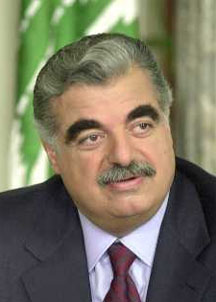AMSTERDAM/BEIRUT, (Reuters) – The U.N.-backed Lebanon tribunal yesterday released the names, photographs and details of four men wanted for killing statesman Rafik al-Hariri, saying it had acted in a bid to speed up their arrest.

Lebanon received the indictments and four arrest warrants from the Special Tribunal for Lebanon last month. While the suspects were not named then, Lebanese officials said the accused were members of the Shi’ite militant movement Hezbollah.
Hezbollah accuses the tribunal of being a tool of the United States and Israel and denies any link to the 2005 assassination.
Pre-trial judge Daniel Fransen ordered the lifting of confidentiality on the full names, aliases, biographical information, photographs and charges against the individuals named in the indictment, the tribunal said in a statement.
“The Prosecutor further submits that making the requested information available in public fora may increase the likelihood of apprehending the accused in the event that any of them are noticed by the public,” the tribunal said in a statement.
There was no immediate reaction from Hezbollah, but an analyst said the release of the names was unlikely to help catch the suspects because the men were no longer in the country.
Hilal Khashan, a Lebanon-based political commentator, said that the Lebanese government, which is backed by Hezbollah, was unable to assist the tribunal.
“The government says they are cooperating with the tribunal but they haven’t found anyone. We know that the four members are not in Lebanon. Hezbollah removed them from the scene to help the government, which can now say it looked for the four but couldn’t find them,” he said.
“Hezbollah did this because it would be very embarrassing for the government if the four were on Lebanese territory.”
The suspects named were Mustafa Amine Badreddine, a senior Hezbollah figure and brother-in-law of slain Hezbollah commander Imad Moughniyeh, as well as Salim Jamil Ayyash, Hussein Hassan Oneissi and Assad Hassan Sabra.





